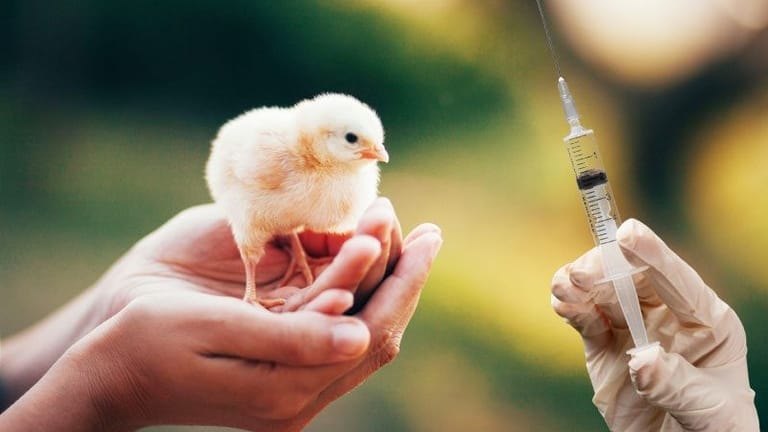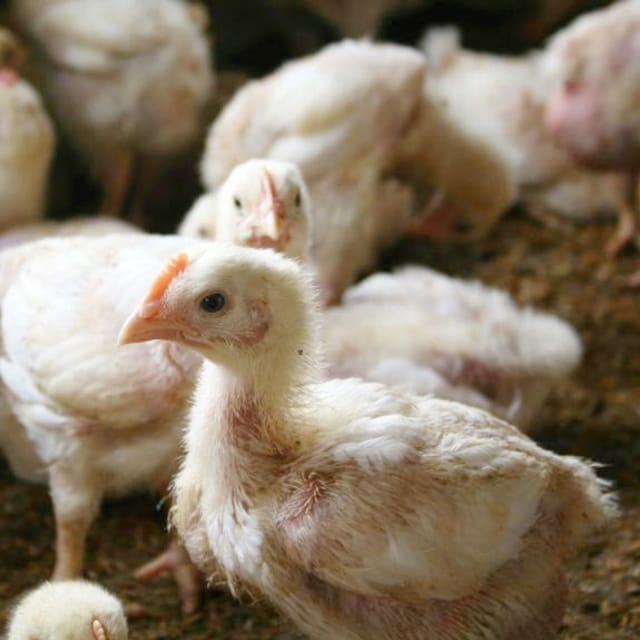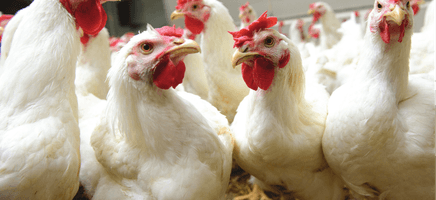
Vaccine Reactions and Efficiency in Poultry
Vaccination is a cornerstone of poultry health management and plays a key role in preventing the spread of infectious diseases. While vaccines are essential to protecting flocks, poultry producers must be aware of potential vaccine reactions that can affect bird welfare and overall production performance.
Vaccine reactions in poultry can manifest in a variety of ways, ranging from mild to severe. Vaccines (live attenuated) used primarily for respiratory diseases in poultry, such as Infectious Bronchitis (IB), Avian Influenza and Newcastle Disease (ND), can be a stressor because they replicate in the bird’s lungs. These vaccines are designed to mimic a natural infection, stimulating a strong immune response. Since these vaccines contain live but weakened pathogens, they can cause mild symptoms similar to a weak form of the illness they protect against. This various reactions that may occur, can pose a challenge to the overall health and productivity of the flock.

Mitigating Vaccine Related Challenges
Proactive measures can significantly reduce the impact of vaccine reactions on poultry flocks. In addition to appropriate vaccine selection and strategic timing, essential oils have shown potential in supporting poultry health through their antimicrobial and immunomodulatory properties.
Several studies suggest that essential oils derived from plants such as oregano, thyme and eucalyptus may contribute to improved immune responses in poultry, thereby promoting overall well-being. The incorporation of essential oils into vaccination protocols is being explored in the context of vaccine administration against respiratory diseases in poultry. Preliminary research suggests that certain essential oils may have the potential to reduce adverse reactions to vaccines, such as inflammation, pain or stress, thereby improving the overall effectiveness of vaccination strategies in poultry production. In the case of respiratory symptoms, certain essential oils can help alleviate these symptoms and ensure proper performance of the chicken.
Check out our Aromax and 42 Degree –powerful blends of mainly natural botanicals offering numerous benefits to keep the production going.
- [1] Martins et al. 2022
- [2] Noack, Sandra; Chapman, H. David; Selzer, Paul M. (2019): Anticoccidial drugs of the livestock industry. In: Parasitology research 118 (7), S. 2009,2026. DOI: 10.1007/s00436-019-06343-5.
- [2] Peek, H. W.; Landman, W. J. M. (2011): Coccidiosis in poultry: anticoccidial products, vaccines and other prevention strategies. In: The veterinary quarterly 31 (3), S. 143,161. DOI: 10.1080/01652176.2011.605247.
- [3] Blake, Damer P.; Knox, Jolene; Dehaeck, Ben; Huntington, Ben; Rathinam, Thilak; Ravipati, Venu et al. (2020): Re-calculating the cost of coccidiosis in chickens. In: Veterinary research 51 (1), S. 115. DOI: 10.1186/s13567-020-00837-2
- [4] Yoon, Bo Kyeong; Jackman, Joshua A.; Valle-González, Elba R.; Cho, Nam-Joon (2018): Antibacterial Free Fatty Acids and Monoglycerides: Biological Activities, Experimental Testing, and Therapeutic Applications. In: International journal of molecular sciences 19 (4)

